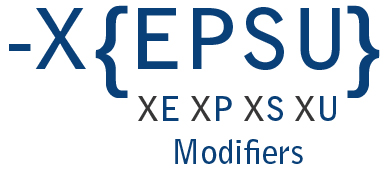CMS is introducing four new HCPCS (Healthcare Common Procedure Coding System) modifiers to identify subsets of modifier 59 that is used to designate a “distinct procedural service”. The new subset modifiers are designed specifically to reduce the improper use of modifier 59 and improve claims processing for providers.
The most extensively used HCPCS modifier, modifier 59 can be used in a number of circumstances. It is infamous for widespread misuse and high levels of manual audit activity and has often resulted in appeals, civil fraud and abuse cases, and reviews. Often, this modifier is used inappropriately to evade NCCI (National Correct Coding Initiative) edits. It is hoped that the establishment of the subset modifiers will reduce the wrong use of modifier 59. The new subsets are also expected to improve claims processing for healthcare providers. The following are the new modifiers referred to together as -X {EPSU} modifiers and represent specific subsets of the -59 modifier.
- XE Separate Encounter: A service that is distinct because it occurred during a separate encounter
- XS Separate Structure: A service that is distinct because it was performed on a separate organ/structure
- XP Separate Practitioner: A service that is distinct because it was performed by a different practitioner
- XU Unusual Non-Overlapping Service: The use of a service that is distinct because it does not overlap usual components of the main service
CMS will continue to accept modifier 59 in many instances. However, according to CPT instructions, modifier -59 should not be used when a more specific and descriptive modifier is available for billing certain codes that are at high risk for inappropriate and erratic billing. Since the -X {EPSU} modifiers are more definitive versions of modifier -59, it would be incorrect to report both modifiers on the same line.
This change will be effective from January 5, 2015. Initially, either modifier 59 or an X {EPSU} modifier will be accepted. However, CMS requests providers to quickly start using the more selective modifiers.




